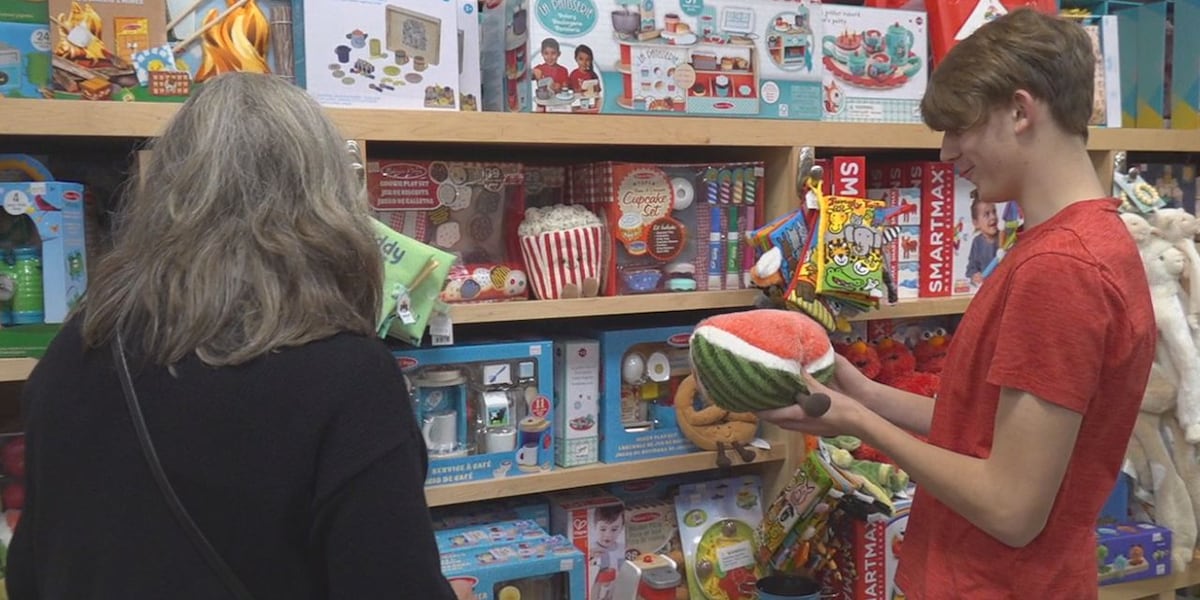Bussiness
BUSINESS MONDAY: Spotlight on Barbato Disposal & Excavating—built on hard work and ingenuity

“Barbato Disposal is a local family-owned and -operated business that has been serving Columbia County, N.Y.; Berkshire County, Mass.; Greene County, N.Y.; and Litchfield County, Conn. for over 60 years, offering weekly residential, commercial, and industrial trash and recycling pick-up as well as roll-off and dumpster rentals. In addition, Barbato Excavation offers services for residential and commercial customers, such as building roads, driveways, tennis courts, basketball courts, foundations, demolition, clean-outs, septic systems, backhoe and bulldozing services, and more. They also provide stone, gravel, clean fill, topsoil, compost, bark mulch, wood chips, and blacktop products.” — Barbato Disposal & Excavation website
Carmen Barbato was not an average 12-year-old, nor is he an average 86-year-old. By the time he was a senior in high school, he had work experience that would wow college admissions boards and corporate boards alike. He had also developed the character traits those entities long to see—the adventurous spirit to start a new life in a new country, the ingenuity to make an old car into a dump truck, and the determination and grit to be self-sufficient, holding down three jobs and paying his own room and board while attending school.
Now Carmen Barbato sits at the helm of the company he started back then, his wife helping out in the office and two sons working the disposal and excavation arms of the business. On Thursdays, he still rides the route with his son Mark, loading the trash and recycling onto the truck. He’s grown his customer base from 20 to a few thousand during his lifetime.
A 12-year-old boy with a lot of grit
“Carmen was born in Italy, the son of an American mother and Italian father, and therefore an American citizen himself,” his wife Elaine begins. After the war (in 1948), his parents sent him and his sister (ages 11 and 15, respectively) to the States to live with their aunt and uncle in Boston to give them more opportunities. Within a short time, the relatives decided they could no longer care for the teens. So Carmen and his sister moved to Albany, where she eventually met and married her husband. Then they all moved to Hillsdale, N.Y., where Carmen worked odd jobs to earn money before and after school and on weekends—including delivering newspapers and working at Pine Lane Poultry Farm.
When his sister and her husband moved back to Albany, Carmen was determined to stay in Hillsdale. He lived with the Gellerts (a prominent family that took in immigrants to help with the egg farm), converted an old station wagon into a pick-up (of sorts), and began hauling garbage for 20 households—mostly older people who were happy to pay 50 cents a week to avoid having to make a dump run themselves. When his sister’s brother in-law (Pierre Van Hoesen) decided he didn’t want to collect garbage anymore, Carmen bought the vehicle and continued the business on his own, working on weekends throughout his high school senior year to pay for his room and board.
“By saving his money, he was eventually able to buy a small, ancient dump truck to make his route more efficient,” Elaine continues. As word spread about the convenience of having a “garbage collector,” more people asked to be added to the route. Before long, Carmen Barbato was a well-known businessman.

Many nearby farmers had gravel pits and needed someone to load gravel or manure or haul other things away. So he decided to give up working on the poultry farm on Saturdays and expand his gravel business instead, making trips to gravel pits in Copake and Craryville and deliveries to more customers. “He was always good at saving,” his son Mark notes, “and soon had enough money to buy his own tractor with a front loader.” After buying a small trailer and backhoe, he was able to expand his business into Ancram and Ancramdale. “Everything he bought was old,” Mark explains, “but each addition to his ‘fleet’ helped him gradually improve his business and extend into the driveway-making business using sand, gravel, and stones.”

Growing the business with help from his sons
Carmen Jr. (Carmen’s oldest son) returned from Las Vegas to head the trash/recycling business. Mark, who had just finished a degree in psychology at Arizona State, managed the excavating business. Their father continued as chief consultant, using his vast experience to set pricing and advise on big decisions.
More trash/recycling companies came to town, offering lower prices initially, then raising them once they built up business, and selling soon after. “We saw five or more companies do just that,” Mark recalls. But people started getting wise to the trend, and most kept their accounts with Barbato.
“The economic downturn of 2008 was a huge growth spurt, with everyone working ridiculous hours. People flocked to the Berkshires when housing prices were cheap, so we were busy clearing land and houses and digging foundations,” Mark recalls. Without any website or advertising, their roll-off business quickly filled to capacity, serving Columbia County, the Berkshires, and Connecticut. While that business eventually slowed, “time is money,” the residential business remained strong.
COVID craziness and post-COVID costs
“COVID was a crazy time that lasted for a couple of years,” says Mark. “Because my parents were both in their eighties, they stayed up at the house, and a worker who was in his seventies stayed home. We lost eight drivers (for various reasons), and my brother Carmen and I were doing the routes by ourselves, rather than having two people like we normally do.”
 Mark continues: “A lot of second home owners initially thought they could get away with dumping their garbage at the local gas station during COVID, even though it’s a theft of services,” he shares. “But with surveillance cameras, all it takes is one phone call from the owner to say ‘STOP!’ and they quickly see the light.”
Mark continues: “A lot of second home owners initially thought they could get away with dumping their garbage at the local gas station during COVID, even though it’s a theft of services,” he shares. “But with surveillance cameras, all it takes is one phone call from the owner to say ‘STOP!’ and they quickly see the light.”
The cost of dumping at the landfill also skyrocketed during COVID. “During that time, the rates went up four times a year, compared to the decade before that, when they only increased once,” Mark explains.
The business recently started getting people back full-time, but only by substantially raising salaries. “If we didn’t, we’d lose them to the bigger companies,” he says. However, they also gained many new business customers (who saw Barbato’s was reliable even in a crisis), which has helped overall.
“The new trend is that larger companies are buying the landfills and using their own labor and trucks, so they essentially move the money within the business, paying themselves to dump the trash,” Mark notes. “That means we must raise our rates to dump in their landfills.” But that doesn’t mean they’ll stop serving the community anytime soon. Using five trucks with mechanical arms, they can handle 1,000 customers daily.
In addition, Barbato’s owns a transfer station (at 2790 State Route 23), where they recycle whatever they can and then haul the remaining garbage to Seneca Falls (currently the closest landfill, five hours away). The transfer station is open to the public and accepts construction debris, demolition, large items, household cleanups, and residential trash in bulk over a certified scale, offering the most inexpensive way to dispose of unwanted items.
Their biggest challenge since COVID? “Not being able to find help,” Mark says without hesitation. “Even when you do, people don’t show up like they used to,” he adds. For example, five workers were out the day we met (the Monday of the solar eclipse). Mark adds that the last vacation he took was in 2012.
Barbato’s currently operates in three states (Massachusetts, New York, and Connecticut) with 32 employees, 30 roll-off dumpsters, and 35 trucks. They’ve had “big offers from big companies” looking to buy the business, but like their father, Mark and Carmen, Jr. keep going strong. When they debated adding a Thursday route to Lenox this year, Mark conceded as long as he didn’t have to do it alone. His dad quickly agreed to be his rider, getting out at every stop—not typical for an 86-year-old. But then again, Carmen Barbato has never been typical.
“When people ask us about our business, I say we’re lucky,” Elaine smiles. “I think our sons enjoy working with their dad and with each other.” In this time and place, I’d have to agree—it’s lucky indeed.

Today, April 22, is Earth Day. Here are additional resources to honor the day in 2024:
To understand the different ways to dispose of trash, check out Waste Disposal Methods.
For strategies to better manage your waste, go to: The Importance of the 5 Rs of Waste Management.
For eight choices you can make to help the Earth, explore The Nature Conservancy.
For achieving zero waste by 2030, see Keep Massachusetts Beautiful.









